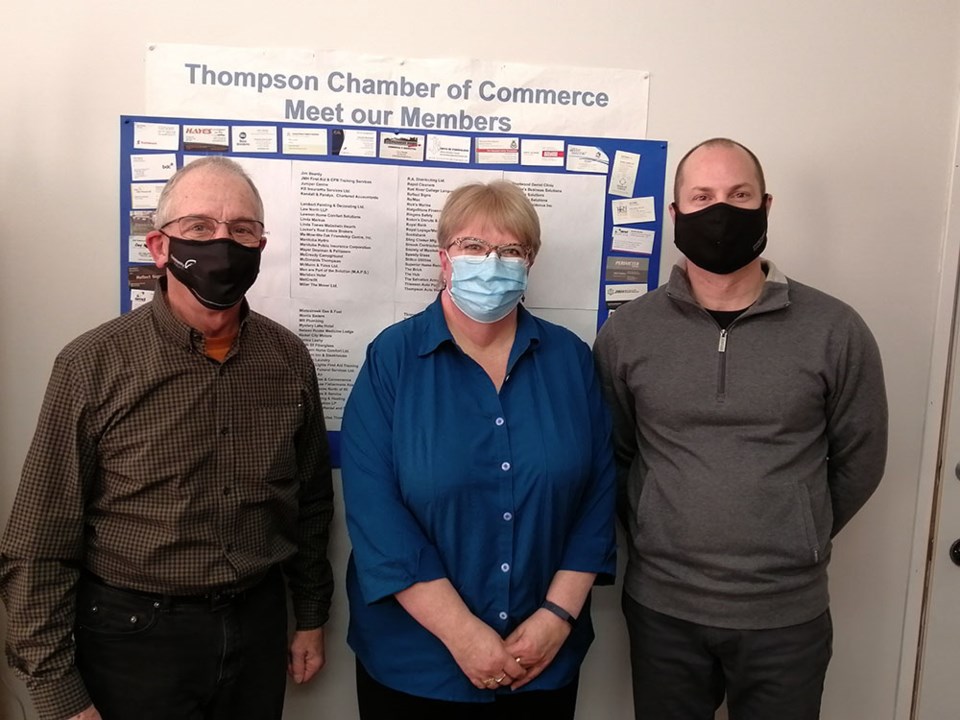Travel Manitoba has a new point person to help boost tourism in the province’s north.
Mike Goodyear, who took over the position from Al McLauchlan, was in Thompson in December as part of an introduction tour and said the role fits his skill set and background.
Originally from Lynn Lake, Goodyear has lived in Churchill for the past 22 years. He was executive director of the Churchill Northern Studies Centre until 2014 and has also worked in the community’s museum. He is also a pilot and has worked both in air taxi operations and for remote hunting and fishing lodges in the north.
Goodyear started the job late last year.
“To be honest, I wasn’t looking for the job,” he said. “Somebody suggested, ‘Why don’t you throw your name into the hat?’ and so I did. It fit with the work that I’d done previously with the research centre. I see this as a bit of an extension of that, just being able to share with people what the north has to offer and what I’ve experienced over the years.”
His roots in Churchill may make some people wary, Goodyear admits, given that some people think the Hudson Bay port town known for its polar bears and beluga whales gets more than its fair share of marketing attention from Travel Manitoba, but he stresses that his job is to help tourism operators and communities throughout the whole north, from Grand Rapids up.
“It’s basically acting as a point person for Travel Manitoba between the organization and the communities and the operators,” Goodyear says. “Working with existing operators, working with new operators that are looking to get involved in tourism, being that point person so that when there’s questions about what’s going on in the north that there’s somewhere someone familiar to answer them. Basically being a booster and a proponent.”
Different communities in the north are at different points on the spectrum when it comes to attracting tourists.
“Some communities have a well-known draw, an anchor product like polar bears,” Goodyear says. “Other communities, there’s not necessarily one thing that they’re known for. Thompson’s different. It’s a regional centre, there’s plenty of restaurants and accommodations and that sort of thing but once you get out into some of the other communities there just aren’t the accommodations, there aren’t the restaurants and places to eat.”
Although tourism can be an important part of a diversified local and regional economy, it’s not a magic bullet.
“I’ve lived in the north my whole life and unfortunately I’ve lived in places where the economy’s evaporated, where the mine’s closed,” Goodyear says. “It’s not helpful when someone comes into the community and says, ‘All your problems will be solved by tourism’ because that’s not the case. Every healthy community has to have industry. It has to have development. It has to have other things. Yes, some people can become involved in tourism, it can be a way of diversifying economies but it’s not going to solve everything.”
One silver lining to the COVID-19 pandemic that has affected Manitoba for almost two years is people discovering new parts of their home province, says McLauchlan.
“One thing it did show southern Manitobans is that the north is here, it’s driveable and there’s great vacationing in Northern Manitoba. One of the lodge owners over in The Pas said we’ve never had a year like this.”
But in order to sustain that pandemic-related domestic tourist bump, people have to make it better known.
“We don’t blow our horns in the north,” McLauchlan says. “We don’t tell people what we’ve got up here and we need to start doing that because we have everything up here that the Whiteshell has. Look how many people go into the Whiteshell. We have the same up here. We have world-class fishing, we have world-class snowmobiling, we have world-class lodges, polar bear viewing, everything, but we don’t tell people that.”
People sometimes think that a big attraction is needed to bring in visitors, but McLauchlan, who remains involved with Northern Manitoba’s snowmobile strategy says, that isn’t the case. Capitalizing on the region’s long winters and plentiful snow to entice a couple of snowmobilers to come up for a weekend isn’t insignificant.
“They’re renting two hotel rooms, two lodge rooms or something, they’re going to buy gas, they’re going to buy food, they’re going to buy all this stuff. All of a sudden, you’re looking at $1,000 a weekend so you multiply that by whatever, 100, 200, holy geez you’re starting to get a lot of money coming into a community or into a region.”




